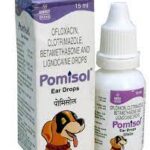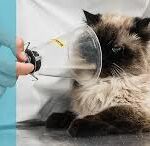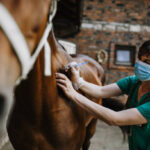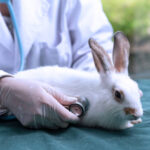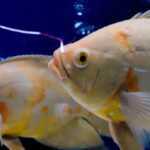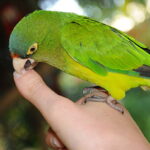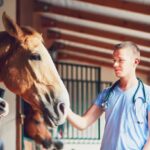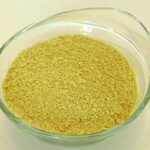Introduction to Horse Care
Horse Care is not just a responsibility; it’s a fulfilling journey of companionship and mutual trust. Whether you’re a seasoned equestrian or a novice enthusiast, ensuring proper horse care is paramount for the well-being of your four-legged friend. This comprehensive guide will equip you with the knowledge and tools necessary to provide top-notch care for your beloved equine companion.
Table of Contents
Understanding
Before diving into the specifics of horse care, it’s essential to understand the unique needs of these majestic animals. Horses are herbivores with sensitive digestive systems and intricate social structures. They require a balanced diet, regular exercise, proper shelter, and routine medical care to thrive.
Nutrition for Horse Care
Horse Care forms the foundation of their overall health and well-being. A diet rich in fiber, protein, vitamins, and minerals is essential for optimal performance and longevity. Ensure your horse has access to high-quality forage such as hay or pasture, supplemented with grains or concentrates as needed.
Exercise and Activity for Horse Care
Just like humans, horses care need regular exercise to maintain physical fitness and mental stimulation. Engage your horse in a variety of activities such as riding, lunging, or turnout in a paddock or pasture. Regular exercise not only keeps your horse fit but also helps prevent boredom and behavioral issues.

Shelter and Environment for Horse Care
Providing adequate shelter is essential for protecting your horse from the elements and ensuring their comfort. A stable or shelter with proper ventilation and drainage is ideal, supplemented with turnout time in a safe pasture environment. Additionally, ensure your horse has access to clean, fresh water at all times.
Grooming and Hygiene
Grooming is not just about keeping your horse looking neat and tidy; it’s also crucial for their health and well-being. Regular grooming helps remove dirt, sweat, and dead hair, preventing skin issues and promoting a healthy coat. Invest in quality grooming tools such as brushes, curry combs, and hoof picks to keep your horse looking and feeling their best.
Dental Care
Proper dental care is essential for ensuring your horse can eat comfortably and maintain proper digestion. Schedule regular dental check-ups with a qualified equine dentist to address any issues such as sharp points or malocclusions. Additionally, provide your horse with access to quality forage to promote natural wear and tear of their teeth.
Hoof Care
Hoof care is another critical aspect of horse maintenance. Regular trimming and shoeing help prevent hoof imbalances and lameness issues. Work with a skilled farrier to develop a hoof care regimen tailored to your horse’s needs.
Routine Veterinary Care
Regular veterinary care is essential for monitoring your horse’s health and addressing any issues promptly. Schedule annual wellness exams and vaccinations to prevent common illnesses and diseases. Additionally, be vigilant for signs of illness or injury and consult with your veterinarian as needed.
Parasite Control
Effective parasite control is crucial for maintaining your horse’s health and well-being. Implement a parasite management program that includes regular deworming and fecal testing to control internal parasites such as worms and bots. Additionally, practice good pasture management to minimize parasite exposure.
Vaccinations
Vaccinations play a vital role in preventing infectious diseases in horses. Work with your veterinarian to develop a vaccination schedule tailored to your horse’s risk factors and lifestyle. Common vaccines include those for tetanus, rabies, equine influenza, and West Nile virus.
Alternative Approaches to Horse Care
While traditional methods of horse care are tried and true, there are also alternative approaches that can complement and enhance your equine companion’s well-being. Exploring these alternative views can provide valuable insights and offer new perspectives on horse care.
Natural Horsemanship
Natural horsemanship is a philosophy of horse training that emphasizes understanding and communicating with horses in their natural language. Advocates of natural horsemanship believe in building a trusting relationship with the horse based on mutual respect and clear communication. Techniques such as groundwork, round penning, and liberty training are used to develop a deep bond and partnership with the horse.
Positive Reinforcement

Positive reinforcement training techniques focus on rewarding desired behaviors rather than punishing unwanted ones. By using treats, praise, and other rewards, horse trainers can motivate and encourage their equine partners to learn new skills and behaviors willingly. Positive reinforcement training can be especially effective for teaching complex maneuvers, overcoming fears, and building confidence in horses.
Equine Therapy
Equine therapy, also known as horse-assisted therapy or hippotherapy, is a form of therapy that involves interactions with horses to promote emotional, physical, and psychological well-being. This approach is particularly beneficial for individuals with disabilities, PTSD, anxiety, depression, and other mental health issues. The presence of horses can have a calming and therapeutic effect, helping individuals develop trust, confidence, and self-awareness.
Holistic Horse Care
Holistic horse care focuses on treating the whole horse, including their physical, mental, and emotional well-being. This approach often incorporates alternative therapies such as acupuncture, chiropractic, massage, and herbal medicine to address imbalances and promote healing. Holistic horse caregivers believe in the interconnectedness of all aspects of the horse’s health and strive to create a balanced and harmonious lifestyle for their equine companions.
Herbal Remedies for Horse Care
Herbal remedies have been used for centuries to treat various ailments in horses. Plants such as chamomile, lavender, arnica, and devil’s claw are believed to have therapeutic properties that can alleviate pain, reduce inflammation, and promote overall health. While scientific evidence supporting the efficacy of herbal remedies in horse care is limited, many horse owners swear by their effectiveness in maintaining their horse’s well-being.
Energy Healing
Energy healing modalities such as Reiki and healing touch are gaining popularity in the world of horse care. These practices involve channeling healing energy into the horse’s body to promote relaxation, reduce stress, and facilitate healing. While the mechanisms behind energy healing are not fully understood, many horse owners report positive results and improvements in their horse’s overall health and demeanor.
Horse Care

Exploring alternative approaches to horse care can broaden your horizons and deepen your understanding of these magnificent animals. Whether you choose to embrace natural horsemanship, incorporate holistic therapies, or explore other alternative methods, the key is to prioritize your horse’s well-being and happiness above all else. By combining traditional wisdom with innovative techniques, you can create a care regimen that meets the unique needs of your equine companion and strengthens your bond for years to come.
Conclusion
Caring for a horse is a rewarding experience that requires dedication, knowledge, and compassion. By understanding your horse’s unique needs and implementing a comprehensive care regimen, you can ensure they lead a healthy and fulfilling life. Remember, your horse relies on you for their well-being, so make horse care a top priority.


